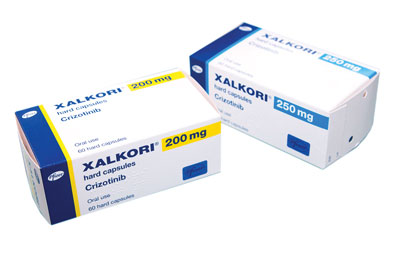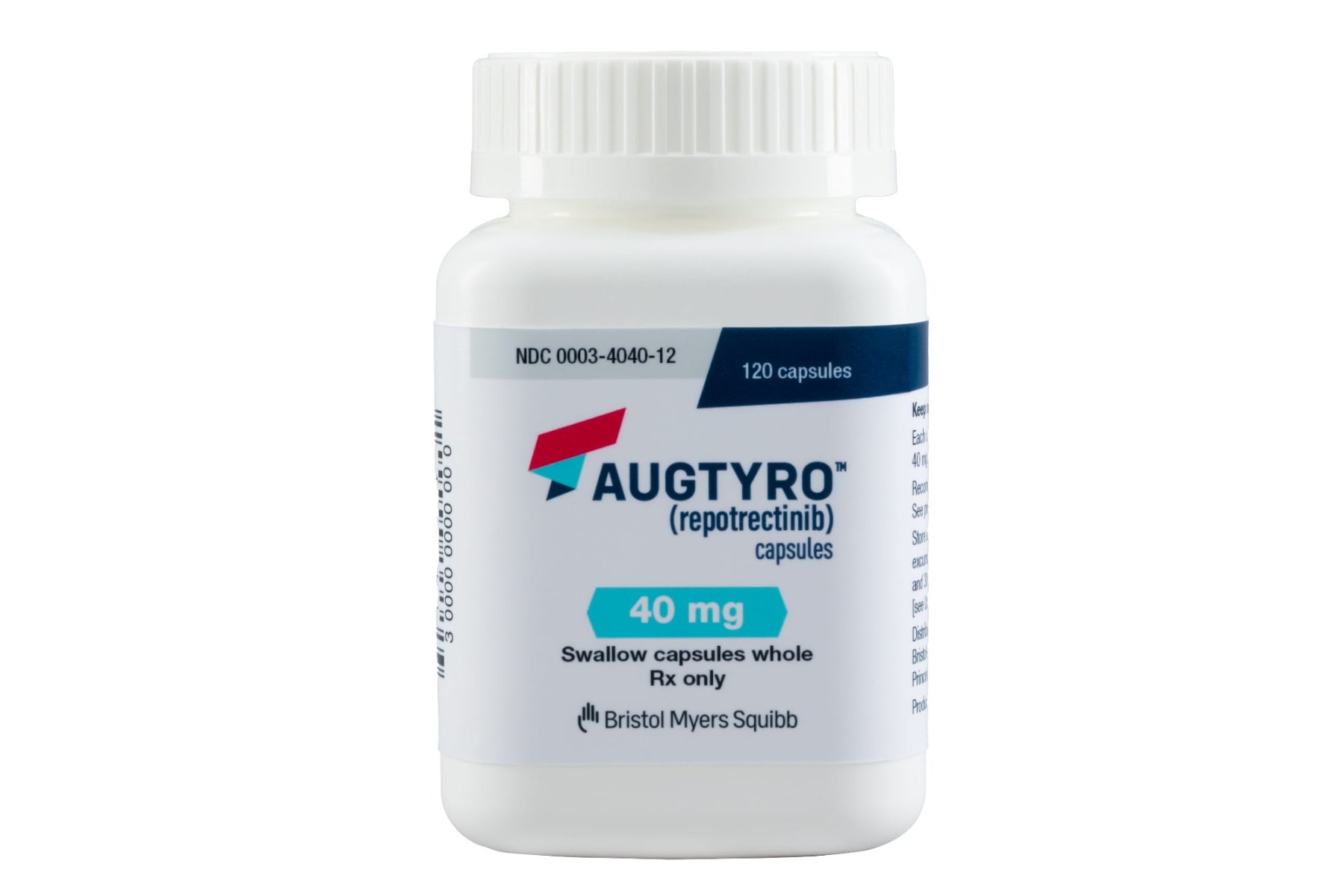Xalkori (crizotinib) vs Augtyro (repotrectinib)
Xalkori (crizotinib) vs Augtyro (repotrectinib)
Xalkori (crizotinib) and Augtyro (repotrectinib) are both targeted therapies used to treat certain types of cancer, but they differ in their specific indications and mechanisms of action. Xalkori is approved for the treatment of non-small cell lung cancer (NSCLC) with specific genetic alterations (ALK or ROS1), and it works by inhibiting these cancer-driving proteins. Augtyro, on the other hand, is designed to target a broader range of mutations, including those resistant to earlier treatments, and is used for the treatment of solid tumors with NTRK gene fusions, ROS1 or ALK mutations, providing an option for patients who might have developed resistance to prior therapies such as Xalkori. When deciding which medicine is right for them, patients should consider factors such as the specific genetic makeup of their cancer, previous treatments, and the safety and efficacy profile of each medication, in consultation with their healthcare provider.
Difference between Xalkori and Augtyro
| Metric | Xalkori (crizotinib) | Augtyro (repotrectinib) |
|---|---|---|
| Generic name | Crizotinib | Repotrectinib |
| Indications | ALK or ROS1-positive non-small cell lung cancer (NSCLC) | Advanced solid tumors with ALK, ROS1, or NTRK1-3 alterations |
| Mechanism of action | ALK and ROS1 tyrosine kinase inhibitor | ALK, ROS1, and TRK tyrosine kinase inhibitor |
| Brand names | Xalkori | Augtyro |
| Administrative route | Oral | Oral |
| Side effects | Visual disorders, gastrointestinal effects, edema, elevated transaminases, fatigue | Fatigue, constipation, cough, dyspnea, dizziness |
| Contraindications | Hepatic impairment, concurrent use with strong CYP3A inhibitors or inducers | Not yet fully established; similar contraindications to other tyrosine kinase inhibitors may apply |
| Drug class | Tyrosine kinase inhibitor | Tyrosine kinase inhibitor |
| Manufacturer | Pfizer | Turning Point Therapeutics |
Efficacy
Xalkori (Crizotinib) Efficacy in Treating Lung Cancer
Xalkori (crizotinib) is an oral medication approved by the Food and Drug Administration (FDA) for the treatment of non-small cell lung cancer (NSCLC) that is anaplastic lymphoma kinase (ALK)-positive. Clinical trials have demonstrated that crizotinib is effective in shrinking tumors in patients with ALK-positive NSCLC. The efficacy of Xalkori was established in a multicenter, single-arm study where patients with advanced ALK-positive NSCLC who had received prior chemotherapy showed a significant response rate to crizotinib treatment. The response rate was observed through objective response rates (ORR) and progression-free survival (PFS), with many patients experiencing a substantial delay in disease progression.
In addition to its use in previously treated ALK-positive NSCLC, Xalkori has also shown efficacy as a first-line treatment. In a randomized trial comparing crizotinib with standard chemotherapy in untreated advanced ALK-positive NSCLC patients, crizotinib significantly improved progression-free survival, with a median PFS of several months longer than that observed with chemotherapy. The overall response rate was also higher in the crizotinib group compared to the chemotherapy group, indicating a greater likelihood of tumor shrinkage.
Augtyro (Repotrectinib) Efficacy in Treating Lung Cancer
Augtyro (repotrectinib) is an investigational, next-generation tyrosine kinase inhibitor targeting the tropomyosin receptor kinase (TRK), ROS1, and ALK kinases. While not yet approved by the FDA, repotrectinib has shown promise in early clinical trials for the treatment of lung cancer, particularly in patients with ROS1-positive NSCLC and those with ALK-positive NSCLC who have become resistant to prior ALK inhibitors. In these trials, repotrectinib demonstrated a favorable response rate, indicating its potential as an effective treatment option for these patient populations.
Early-phase clinical trials have reported that repotrectinib is well-tolerated and has significant anti-tumor activity in patients with advanced NSCLC harboring ROS1 or ALK rearrangements. The reported data suggest that repotrectinib may offer benefits for patients who have developed resistance to first-generation ALK inhibitors, such as crizotinib, or those who have not previously been treated with an ALK inhibitor. As repotrectinib continues through the clinical development process, further studies will be required to confirm its efficacy and safety profile in a larger cohort of lung cancer patients.
Regulatory Agency Approvals
Xalkori
-
European Medical Agency (EMA), European Union

-
Food and Drug Administration (FDA), USA

-
Health Canada

-
Pharmaceuticals and Medical Devices Agency (PMDA), Japan

-
Therapeutic Goods Administration (TGA), Australia

Augtyro
-
Food and Drug Administration (FDA), USA

Access Xalkori or Augtyro today
If Xalkori or Augtyro are not approved or available in your country (e.g. due to supply issues), you can access them via Everyone.org.
How it works

Make an enquiry
Choose the medicine you want to buy, answer a couple of questions, and upload your prescription to speed things up. We’ll get back to you within 24 hours.


Make an enquiry
Choose the medicine you want to buy, answer a couple of questions, and upload your prescription to speed things up. We’ll get back to you within 24 hours.


Breeze through the paperwork
We'll guide you through the required documents for importing unapproved medicine, ensuring you have all the necessary information.


Get a personalized quote
We’ll prepare a quote for you, including medicine costs and any shipping, administrative, or import fees that may apply.


Receive your medicine
Accept the quote and we’ll handle the rest - sourcing and safely delivering your medicine.

Some text on this page has been automatically generated. Speak to your physician before you start a new treatment or medication.
Let's talk
If you have any questions, call us or send us a message through WhatsApp or email:
Contact us




